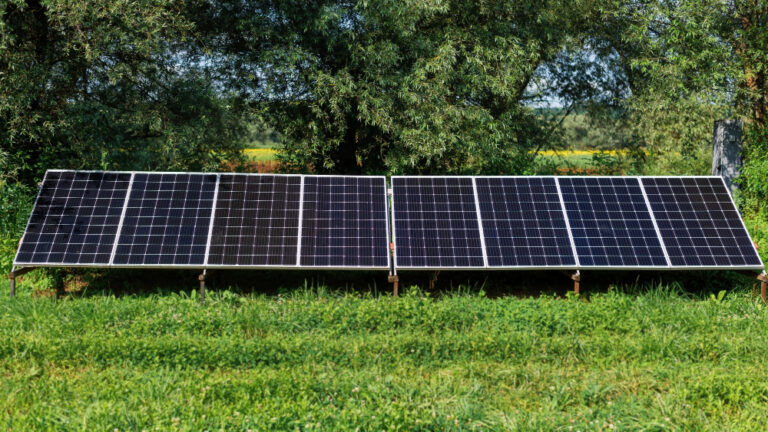Exploring the Three Main Types of Solar Panel Systems: Grid-Tied, Off-Grid, and Hybrid

There are three primary types of solar panel systems: grid-tied (on-grid), off-grid, and hybrid systems. Each offers unique benefits based on setup, equipment, installation complexity, and, importantly, overall cost and savings. Which one best suits your needs? Let’s dive into the pros and cons of each type.
Grid-Tied Systems
Grid-tied solar systems are directly connected to the utility grid, allowing your home to use both solar-generated energy and electricity from the grid. When your solar panels produce more energy than you need, the excess can be sent back to the grid. In many areas, net metering allows homeowners to receive bill credits for this surplus energy, offsetting future electricity costs.
Grid-tied systems are popular for their affordability, especially in locations offering full-retail net metering. Since they require less equipment, they are generally more cost-effective. However, this setup does mean that during power outages, a grid-tied system won’t keep your home powered.
Off-Grid Systems
Off-grid solar systems operate independently of the utility grid. To function off-grid, these systems need solar panels, extensive battery storage, and usually an additional power source like a gas generator. Off-grid setups are ideal for homes in remote areas without grid access, providing a self-reliant energy solution.
While off-grid systems provide independence from utility companies, they are also more costly due to the high amount of battery storage needed. Living off-grid may also require more mindful energy usage, as homeowners need to monitor their electricity consumption and production closely to avoid running out of power.
Hybrid Solar Systems
Hybrid systems, often called “solar-plus-storage,” combine the benefits of both grid-tied and off-grid systems. These setups connect to both the utility grid and battery storage, providing greater reliability during power outages. Hybrid systems are especially popular in regions with frequent outages or limited net metering options.
Batteries in hybrid systems allow you to store excess solar power, using it later to reduce grid dependency and maximize clean energy usage. While these systems offer enhanced energy independence, the higher upfront battery costs can make them more expensive.
Choosing the Best System for Your Needs
For most homeowners, a grid-tied system is the most economical choice, offering a good return on investment with its lower initial cost and simpler design. However, if you frequently experience outages or want increased energy independence, a hybrid system may be more suitable. For remote locations, off-grid systems offer a viable solution, particularly for cabins or isolated areas.
To determine the best system for you, it’s wise to consult with local solar installers who understand the specific needs of your area. Local experts can provide tailored advice on which system will offer you the greatest benefits and help you maximize your solar panel investment.

